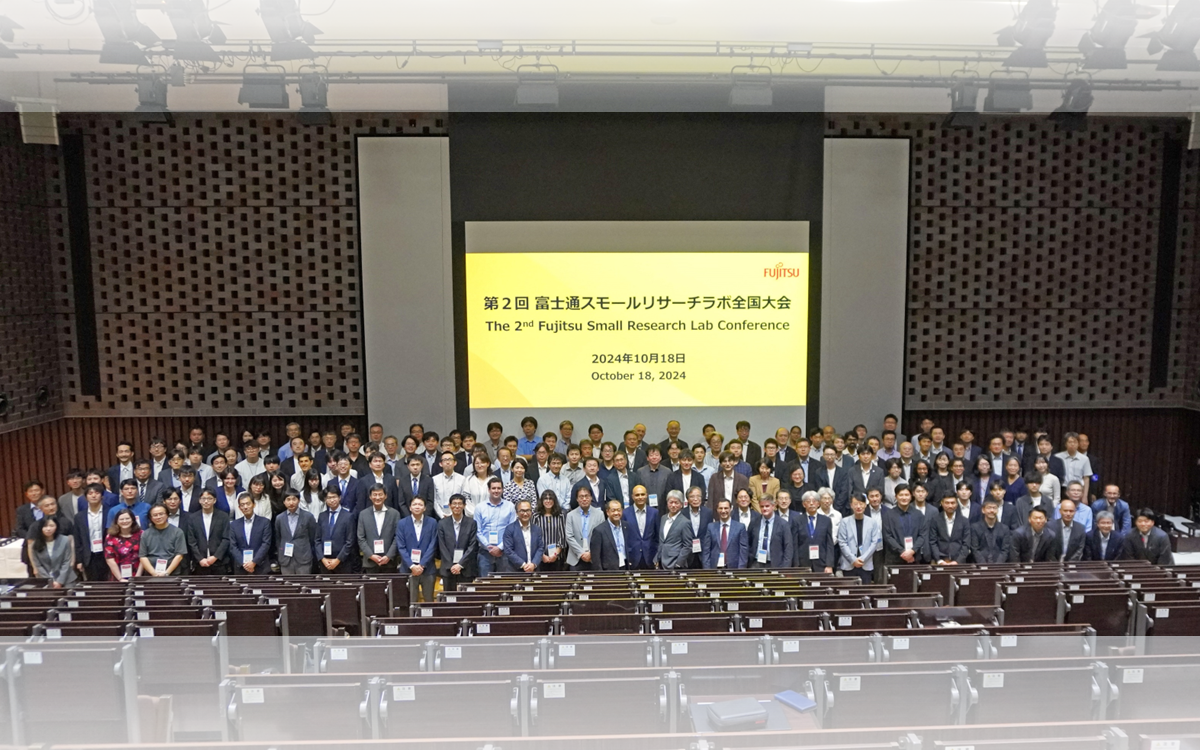Generative AI to Agentic AI: The Next Leap in Business Transformation
Fujitsu / October 30, 2025
As enterprises navigate stagnating productivity, volatile supply chains, and rising customer expectations, a new form of intelligence is emerging. Beyond the limits of generative AI, Agentic AI represents the next leap—autonomous, proactive, and collaborative systems that transform how businesses operate and compete.
Productivity Stagnation and Rising Complexity
Organizations continue to grapple with fragmented systems, rising operational complexity, and talent shortages. Even as generative AI sparked a surge of optimism—delivering breakthroughs in content creation, coding, and analysis—it remains fundamentally reactive. Systems wait for prompts and return outputs, but they lack the ability to act with foresight, autonomy, and coordination.
The limitations are becoming clear. As global disruptions—from supply chain shocks to shifting regulatory landscapes—demand faster, more adaptive responses, enterprises need more than passive tools. Fujitsu’s 2025 CxO Survey highlights this urgency: over 80% of executives expect AI to be embedded into a majority of business processes by 2030, yet only a fraction report progress in critical areas like sustainable supply chains or net-zero commitments. These gaps illustrate that while ambition is high, the tools to deliver resilience and transformation must evolve further. What is needed is intelligence that is goal-oriented, proactive, and collaborative.
Agentic AI: Beyond Generative Intelligence
This is where Agentic AI represents the next leap in enterprise evolution. Building on advances in large language models (LLMs) and reasoning modules, Agentic AI combines perception, memory, and action. It lets users express intent through agents — whether by natural language, APIs, or workflows — and automatically coordinates multiple steps across apps and systems, adapting without manual intervention. It is collaborative, with multiple agents working together or alongside humans. And it is ecosystem-ready, capable of negotiating, coordinating, and transacting across organizational boundaries.
The impact of this shift is profound. Workflows that once required constant human oversight are now managed by AI agents that adapt in real time. Employees move into higher-value roles, focusing on strategy and creativity while AI agents handle the routine, the repetitive, and the complex. Tomorrow’s organizations will increasingly be defined by this dual model: automation with human oversight and human creativity augmented by AI agents. In such workplaces, every employee becomes a “manager of AI agents”—responsible for guiding, supervising, and collaborating with them.

Image credit: Created and edited by the author(s) based on materials from Gartner
At a technical level, this shift is enabled by the evolution from single-agent systems to multi-agent systems and, ultimately, agent ecosystems. Single agents manage narrow tasks. Multi-agent systems collaborate to address complex processes within a company, while ecosystems allow agents to coordinate, negotiate, and execute processes across different companies or platforms. This represents a reimagining of organizational intelligence—where distributed, autonomous systems continuously interact to create value at scale.
Real-World Impact Across Industries
The evolution is already underway across industries. In IT modernization, Agentic AI is proving to be a “golden use case,” executing coding, testing, and deployment faster, cheaper, and more reliably than traditional generative systems.
In financial services, banks are pioneering applications that go beyond cost savings. Moody’s and Auquan are using AI agents to focus on productivity through high-accuracy content generation. Capital One is exploring agents that guide customers through purchasing journeys beyond core banking. BNY Mellon is piloting front-office use cases that expand topline growth. Together, these examples highlight how agents are moving into critical, revenue-facing functions.
In manufacturing, Agentic AI is impacting the full value chain. Johnson & Johnson is optimizing product development. KG Steel is automating production processes. Siemens is advancing quality control, while Cosentino is enhancing customer service with digital staff. These examples show how even industries traditionally bound by physical constraints are beginning to benefit from virtual agents.
Healthcare and compliance are also seeing early traction. From automating contract reviews and strengthening corporate compliance, to supporting physicians with medical record analysis, Agentic AI is demonstrating its versatility across highly regulated sectors.
These examples demonstrate that Agentic AI is more than a concept—it is already laying the groundwork for practical automation, helping enterprises take the first concrete steps from pilots to scalable impact.
The Evolution of Agentic AI

The path forward is clear: enterprises will move from reactive tools to proactive, multi-agent ecosystems. Three stages are emerging. First, automation of routine processes by single agents. Second, multi-agent collaboration to solve complex, cross-functional challenges. Third, agent ecosystems where autonomous systems interact across organizational boundaries, co-creating value in real time.

This evolution is also driving a shift in application architecture. Traditional systems are reactive, dependent on databases and formal query languages. Agentic AI systems replace these with natural language and LLM-powered reasoning, enabling autonomous action and contextual adaptation. This marks the transition from “applications that respond” to “applications that act.”
In this future, the key differentiator will not just be technology, but how organizations integrate governance, trust, and human oversight into agentic architectures. Enterprises that embrace this shift early will shape the intelligent organizations of tomorrow.
Trusted Frameworks for Agentic AI
At Fujitsu, we see Agentic AI not as a distant vision but as a present reality reshaping business. Our focus is on frameworks — the connective technologies that integrate agents into enterprise systems while ensuring governance, trust, and robustness.
Key initiatives include:
• Fujitsu Kozuchi Agentic AI Platform – evolving into a next-generation platform supporting A2A (Agent-to-Agent) and MCP protocols, enabling seamless multi-agent cooperation.
• Domain-specialized AI agents – for manufacturing, supply chain, legal, and healthcare, trained on unique constraints like design standards, regulations, and diagnostics.
• Multi-agent security systems – simulating attack and defense scenarios across virtual environments, enabling proactive cybersecurity with faster, more reliable responses.
• Differentiated framework technologies – such as trust amalgamation, knowledge graph–enhanced retrieval, and multi-agent control.
By embedding these technologies into end-to-end systems of intelligence, Fujitsu ensures enterprises can build trustworthy systems where AI agents collaborate reliably, grounding responses in enterprise knowledge graphs to avoid hallucinations, and fusing diverse signals through amalgamation AI to ensure robust, explainable outcomes.
These strengths are already being recognized globally. In June 2025, the World Economic Forum (WEF) named Fujitsu a pioneer for its multi-agent AI system optimizing supply chains. Coordinating procurement, inventory, logistics, and risk via a knowledge-graph engine, the system achieved deployment in under three months, reduced inventory costs by $15 million annually, delivered $4 million in additional sales per year, and cut enterprise FTE requirements by more than 50%. Crucially, it reduced disruption response times from weeks to just hours, underscoring how Agentic AI drives resilience at scale.
The Tipping Point Is Now
The race to adopt Agentic AI has already begun. Early movers are capturing measurable gains in cost efficiency, resilience, and growth — though caution remains as investors continue to demand clear, sustained returns. The transition from generative to agentic is not optional—it is the next foundation of enterprise intelligence.
Fujitsu is working with global leaders to design, deploy, and scale Agentic AI systems and establish strong intelligence foundations. From IT modernization to supply chain optimization, the opportunities are here—and the time to act is now. With human-centric, collaborative and trusted AI agent ecosystems, enterprises can adopt Agentic AI with confidence, resilience, and measurable business impact. Partner with Fujitsu today to lead the era of Agentic AI.


https://global.fujitsu/en-global/about/activities/global-fde/yasuhide-matsumoto
Related information
- https://www.fujitsu.com/global/kozuchi
- https://activate.fujitsu/en/key-technologies/ai/
- https://activate.fujitsu/en/about/vision/technology-vision
- https://en-portal.research.global.fujitsu.com/
- https://global.fujitsu/en-global/newsroom/gl/2025/08/27-01
- https://global.fujitsu/en-apac/insight/tl-fujitsu-tech-and-service-2-20250725
Editor's Picks









